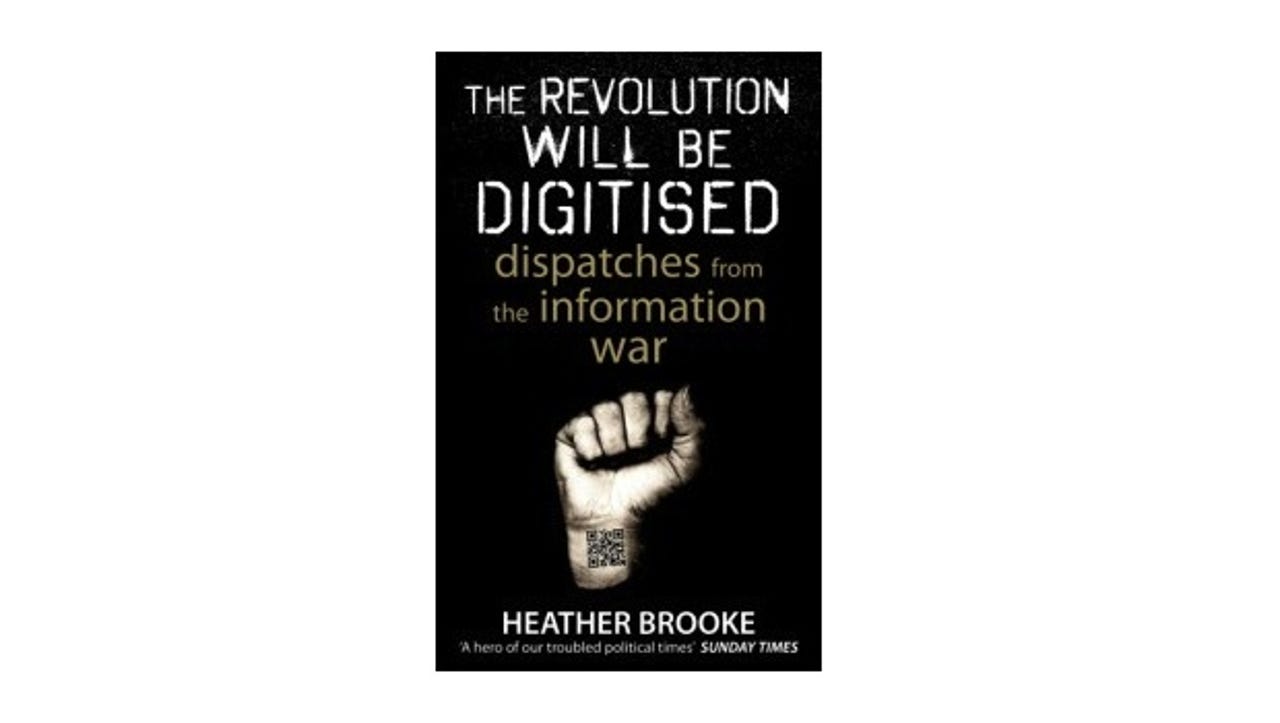Book review: The Revolution Will Be Digitised

The investigative reporter Heather Brooke could not have known when she corrected the galleys for The Revolution Will Be Digitised: Dispatches from the Information War that the week it was released the former partnership of Julian Assange and the The Guardian would implode in a burst of headlines. At issue are the unredacted versions of the 250,000 diplomatic cables that Wikileaks began to make available in redacted form last year, in partnership with the newspaper and four other media organisations.
Last week Wikileaks abruptly published the lot, apparently in a hissy fit because The Guardian journalist David Leigh disclosed the passphrase protecting the encrypted file containing all the unredacted cables in his book Wikileaks: Inside Julian Assange's War on Secrecy (which we hope to review soon). Never mind whose fault it is: what do we do now?

Brooke — the author of The Silent State, which investigated the endemic secrecy at the heart of British government — doesn't quite answer this question. But she puts a great deal of effort into understanding it thoroughly, travelling to Iceland, Boston and Berlin in search of answers. Journalism's job is to tell truth to power, but — as Brooke writes — much of today's journalism is too watered down to do it.
On the one hand, we have companies like Google, Facebook and Acxiom collecting ever more data about each of us. They only want to advertise and sell us things, but that same information is traded or given to our governments. What will they do with all that information? Meanwhile, the governments themselves have plenty of secrets they decline to share with us — even though we, the people, are the folks who pay their salaries and expenses. If you believe we have a right to know, then you'll heartily approve of Wikileaks. If you believe there are limits, then perhaps not so much.
At the heart of the book are the recurring appearances of Wikileaker-in-chief Julian Assange who, at the beginning, is something of a hero. He is first seen in Iceland promoting the notion that the country could reinvent itself post-banking crisis as a global haven for free speech. This idea is taken up by Birgitta Jónsdóttir and introduced into Parliament. Then Assange turns his attention to first the Iraqi war video, released as Collateral Murder, and then the diplomatic cables, burning through supporters as he goes. Inevitably, Brooke finds herself becoming part of the story when a separate source leaks the cables to her personally, causing great consternation to The Guardian when its reporters find out.
On her journey, Brooke must have collided several times with Becky Hogge, who travelled to some of the same locations and talked to some of the same people in writing Barefoot Into Cyberspace, covering roughly the same period and asking the same question: can a new 'hacktivist' generation remake the distribution of power? The two books complement each other sufficiently that they should probably be read together: Hogge's for the loss of innocence, and Brooke's for the will to fight back. The concentration of power, Brooke concludes, is dangerous no matter who has it. An unregulated internet may be a solution.
The Revolution Will Be Digitised: Dispatches from the Information War By Heather Brooke Random House 251pp ISBN:978-0-434-02090-4 £12.99